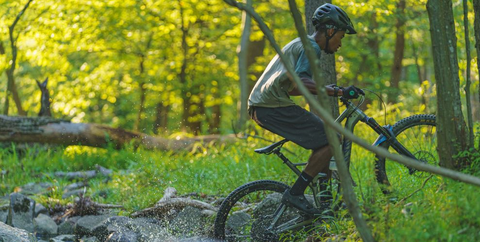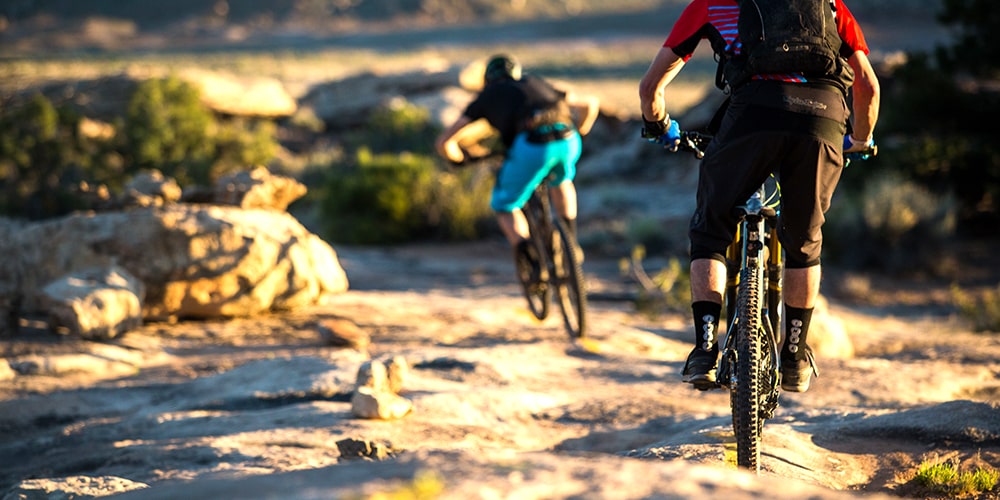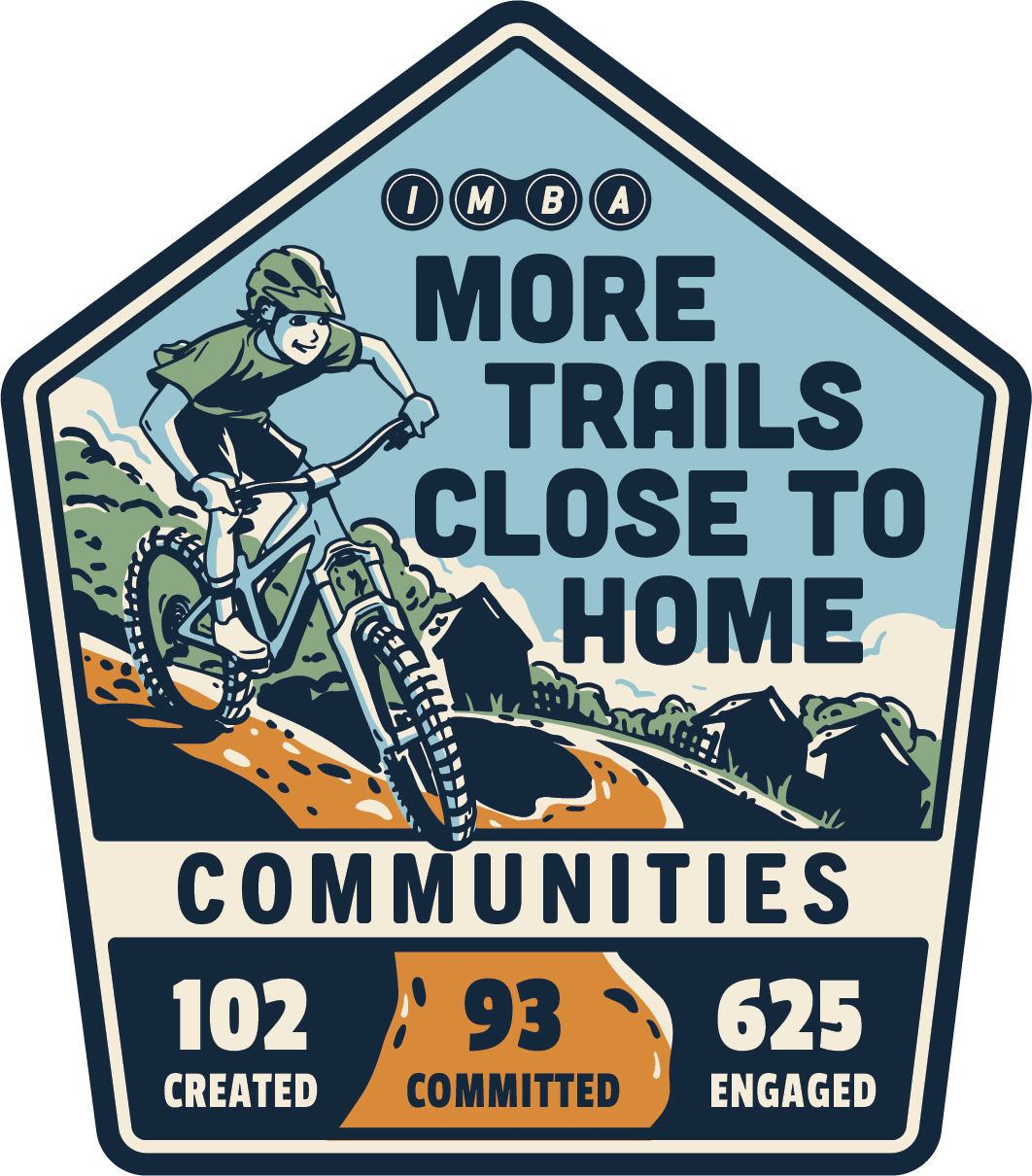Protect Funding for Maryland’s Trails
Every five years, Colorado Parks and Wildlife (CPW) leads the development of an important planning process. This Statewide Comprehensive Outdoor Recreation Plan, or SCORP, is a 5-year plan all states prepare to address the demand for and supply of recreation resources (including local, state and federal funding, like the Land and Water Conservation Fund), identify needs and new opportunities for recreation improvements, and set implementation programs to meet the goals identified through the planning process.
Outdoor recreation is important to the people of Colorado. As such, the SCORP is much more than a federal requirement for funding: it is a reflection of our shared commitment to advancing sustainable, accessible, and equitable opportunities for conservation through outdoor recreation.
Colorado’s 2019-2023 SCORP reflects the shared vision and commitment of diverse outdoor partners to balance outdoor recreation enjoyment and conservation in Colorado’s outdoors. That SCORP plan also looks at current and changing demographics and recreation trends to help the outdoor recreation sector be culturally relevant and respond to future shifts.
The SCORP is developed and written by CPW staff in conjunction with an advisory body called the Colorado Outdoor Partnership (CO-OP); a group which provides leadership in reviewing the strategic direction of the plan. The SCORP is also developed in coordination with Colorado's Outdoor Strategy, which is a collaborative vision for conservation, climate resilience, and sustainable recreation. IMBA’s Government Affairs team has been working with your statewide Colorado Mountain Bike Coalition to aid in conversations with these partners in the planning of the 2024-2028 SCORP.
Right now, CPW is seeking feedback from the public on the relevance and importance of Colorado's outdoor recreation objectives listed in the 2019-2023 plan. Please add your comments so the perspectives and values of mountain bikers are known as CPW staff set the objectives they will use to accomplish their outdoor recreation priorities in the upcoming 2024-2028 plan. Comments on this plan are open through EOD February 28th.
It is important that the voices of mountain bikers and trail advocates are heard during the process that informs this five-year plan for outdoor recreation in our state. We, and the leaders of mountain bike clubs across the state, acknowledge this is more involved than other advocacy action opportunities, and we encourage you to spend the time today or before Wednesday 2/28 at the end of the day, to register your account and complete the survey.
About the Survey
It will take 8-10 minutes to complete the survey.
First, you must create an account. You will need to provide your name, email address, zip code, and a password. The system will verify your account by sending a code to the email you provided (two-factor authentication).
Next, once you’re into the SCORP feedback form survey, there are 13 required questions. Most on a likert scale or multiple choice. You cannot submit your survey without answering those questions.
In section #1, the questions ask about your familiarity with the 2019-2023 SCORP, how you participate in outdoor recreation in Colorado, and if you represent any outdoor recreation interest groups.
In section #2, you’ll be asked, on a scale of “not at all important” to “very important,” how important the nine objectives outlined in the 2019-2023 SCORP objectives are to you.
Questions #14 and #15 are open-ended, not required, but very important for uplifting mountain biking in the 2024-2028 SCORP.
What Could/Should We Say?
IMBA honors the autonomy, opinions, and lived experiences of our members as outdoor recreation enthusiasts. We also have been grappling with how to positively contribute answers to the questions that reflect the perspectives of mountain bikers. If you want to read or build upon them, our recommendations for the final questions (#14 and #15) are reflected in the following. Both of the open-ended questions have two options you are welcome to build on in your comments.
#14- What successes or challenges have you experienced with any of the nine objectives above?
Possible points to make:
- Evidence-based research and making data-driven decisions: Increases in research related to outdoor recreation user groups; barriers and challenges to access; impacts; and contributions to human health, community vitality, and economic impact are important, but the quality and replicability of studies and how that data is transformed into shared knowledge among user groups needs to balance conservation and outdoor recreation. Bring the research to the people to help inform policies, influence behavior, and affect commitment to CO outdoor recreation landscape.
Or
- Including all outdoor recreation user groups in planning is important if the goal is to balance conservation with outdoor recreation opportunities. Mountain bikers continue to contribute to community vitality and local economies, and youth mountain bicycling leagues are having a positive impact on the future of conservation and sustainable trail stewardship. Please be strategic in how you balance the influence of the diverse outdoor recreation interest groups in Colorado.
And from BMA
- Reflect on recent trail proposals striving to offer sustainable and responsible access that may face challenges in garnering support from CPW, such as the Mad Rabbit Trails Project
#15- What is missing from these priorities? What else should CPW consider in the 2024-2028 SCORP?
Possible points to make:
- Sustainable trail systems are a tool for conservation and outdoor recreation. Trails “manage” people by providing the means and the way to access Colorado’s rich natural resources and cultural heritage. Prioritize funding and planning for sustainable, equitably accessible trails for multiple outdoor recreation user groups.
Or
- Please continue to prioritize recreation opportunities across Colorado that expand and enhance world-class mountain biking experiences for riders of all ages, abilities, and skill levels.
And from BMA
- Highlight the ongoing need to prioritize trail-based recreational opportunities across Colorado. Discuss the strain on current trail infrastructure due to the state’s growing population and advocate for the expansion of well-planned and sustainable trail networks. Stress the importance of well-built trail systems in fostering harmony with conservation efforts and wildlife preservation, promoting the coexistence of outdoor recreation and environmental stewardship.






